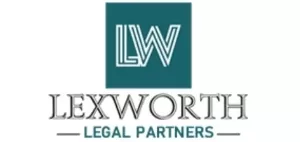- within Government and Public Sector topic(s)
- in United States
- within Government and Public Sector topic(s)
- in United States
- within Tax, Media, Telecoms, IT, Entertainment and Privacy topic(s)
- with Finance and Tax Executives
- with readers working within the Accounting & Consultancy, Banking & Credit and Business & Consumer Services industries
Introduction
At the June 2025 Plenary of the Financial Action Task Force (FATF) held in Strasbourg, Nigeria remained on the global watchdog's list of "Jurisdictions under Increased Monitoring" commonly referred to as the FATF grey list.1 Nigeria was first grey-listed in February 2023, following identified strategic deficiencies in its framework for combatting money laundering, terrorist financing, and the financing of weapons proliferation, particularly amidst increased capital flows and economic diversification.2
Since its grey listing the country has undertaken substantial reforms designed to align its anti-money laundering and counter-terrorist financing (AML/CFT) framework with global best practices. While Nigeria remains on the FATF grey list as of June 2025, the FATF has acknowledged the country's progress in addressing the identified deficiencies, stating that Nigeria has substantially completed its action plan. The FATF further indicated that Nigeria now qualifies for an on-site assessment to verify that reforms are operational, sustainable, and backed by enduring political commitment.3
Reform Milestones and Technical Compliance
At the Plenary session, the FATF noted Nigeria's demonstrable commitment to strengthening its AML/CFT ecosystem. The notable reforms include:
- Completion of its residual money laundering and terrorism financing (ML/TF) risk assessment and updating its national AML/CFT strategy to ensure alignment with other national strategies relevant to high-risk predicate offences.
- Enhancing formal and informal international cooperation in line with its ML/TF risks.
- Improving AML/CFT risk–based supervision of financial institutions and designated non-financial professionals (DNFBPs) and enhancing implementation of preventive measures for high-risk sectors.
- Ensuring that competent authorities have timely access to accurate and up-to-date beneficial ownership (BO) information on legal persons and applying sanctions for breach of BO obligations.
- Demonstrating an increase in the dissemination of financial intelligence by the Financial Intelligence Unit (FIU) and its use by Law Enforcement Agencies (LEAs).
- Demonstrating a sustained increase in ML investigations and prosecutions in line with ML risks.
- Proactively detecting violations of currency declaration obligations and applying sanctions and maintaining comprehensive data in frozen, seized, confiscated, and disposed assets.
- Demonstrating sustained increase in investigations and prosecutions of different types of TF activities in line with risk and enhancing interagency corporation on TF investigations.
- Conducting risk-based and targeted outreach to Non-Profit Organisations (NPOs) at risk of TF abuse without disrupting or discouraging legitimate NPO activities.4
Progress Made and FATF Engagement
Nigeria has implemented a series of coordinated legal and institutional reforms aimed at strengthening its AML/CFT framework and meeting FATF's expectations. As of November 2024, the Nigerian Financial Intelligence Unit (NFIU) reported that Nigeria is now compliant or largely compliant with 37 out of FATF's 40 Recommendations, a substantial improvement from its previous ratings.5 Following this, on 21 February 2025, the FATF, during its Plenary session in Paris, approved Nigeria's fifth progress report since its inclusion on the Grey List.6 These achievements reflect the depth of Nigeria's reform and its increasing alignment with global best practices.
In recognition of this progress, the FATF Africa Joint Group has scheduled an on-site visit to verify that AML/CFT reforms have been implemented and are being sustained and confirm that the necessary political commitment is in place to maintain these efforts. This visit is a key step toward Nigeria's potential removal from the grey list.
Implications for Nigeria
- Foreign Investment and Access to Capital
Delisting from the FATF grey list would significantly enhance Nigeria's global financial credibility and investor sentiment. Conversely, remaining on the list continues to raise red flags for international investors and correspondent banks, particularly in high-risk, capital-intensive sectors such as energy, infrastructure, and fintech.7 Financial institutions may impose enhanced due diligence protocols, inflate transaction costs, and introduce complex contractual compliance safeguards, all of which raise the cost of capital and complicate cross-border operations.
- Compliance Costs and Digital Finance Impact
Nigeria's accelerated compliance with FATF standards has compelled regulators to heighten supervision and enforce more sophisticated AML/CFT controls, especially in the rapidly expanding digital finance ecosystem. As fintech and other digital payment platforms play a central role in financial inclusion and cross-border transactions, regulators are placing more focus on reinforcing their AML/CFT compliance. The Central Bank of Nigeria's (CBN) release of the draft Baseline Standards for Automated AML Systems (issued in May 2025) and the integration of AI-driven compliance solutions exemplifies this trend.8
However, these reforms have placed substantial financial and technical burdens on regulated institutions. While these standards are critical to achieving real-time monitoring and mitigating regulatory risks, the increased compliance costs are expected to trickle down to consumers, notably through higher remittance fees.
This has implications for Nigeria's vibrant diaspora remittance market, which is targeting inflows of over USD 1 billion per month. Operational disruptions from AML/CFT non-compliance could hinder these ambitions and dampen fintech performance metrics.9
Conclusion
Nigeria stands at a crucial juncture in its FATF compliance journey. The country has made undeniable progress both technically and institutionally and has backed its reforms with top-level political commitment. However, the on-site evaluation will be the ultimate test of whether these changes are not only legislated but truly embedded within national systems.
If Nigeria sustains its current momentum and demonstrates real-world effectiveness during the FATF's upcoming assessment, delisting in 2025 is not only possible but probable. Such a development would restore Nigeria's financial integrity in the eyes of the global market, unlock new investment channels, lower systemic risks, and cement its seamless integration into the global financial system.
Footnotes
1. Financial Action Task Force (FATF), Jurisdictions under Increased Monitoring – June 2025.
2. Financial Action Task Force (FATF), Jurisdictions under Increased Monitoring – February 2023.
3. https://www.nfiu.gov.ng/NewsDetail?id=9080
4. Financial Action Task Force (FATF), Jurisdictions under Increased Monitoring – June 2025.
6. https://thenationonlineng.net/nigeria-makes-progress-towards-exiting-fatf-grey-list-2/#google_vignette
7. https://www.debevoise.com/-/media/files/insights/publications/2023/03/08_nigeria-and-south-africa-added-to-the-fatf.pdf?rev=e78d0d41a9584435be016f3f03d4892a&hash=BFBBC692DD787100BDC0F953E713D07F
8. Central Bank of Nigeria, Baseline Standards for Automated Anti-Money Laundering Solutions, May 2025.
9. https://www.arise.tv/cbn-aims-for-1-billion-monthly-remittances-after-addressing-diaspora-concerns/
The content of this article is intended to provide a general guide to the subject matter. Specialist advice should be sought about your specific circumstances.



